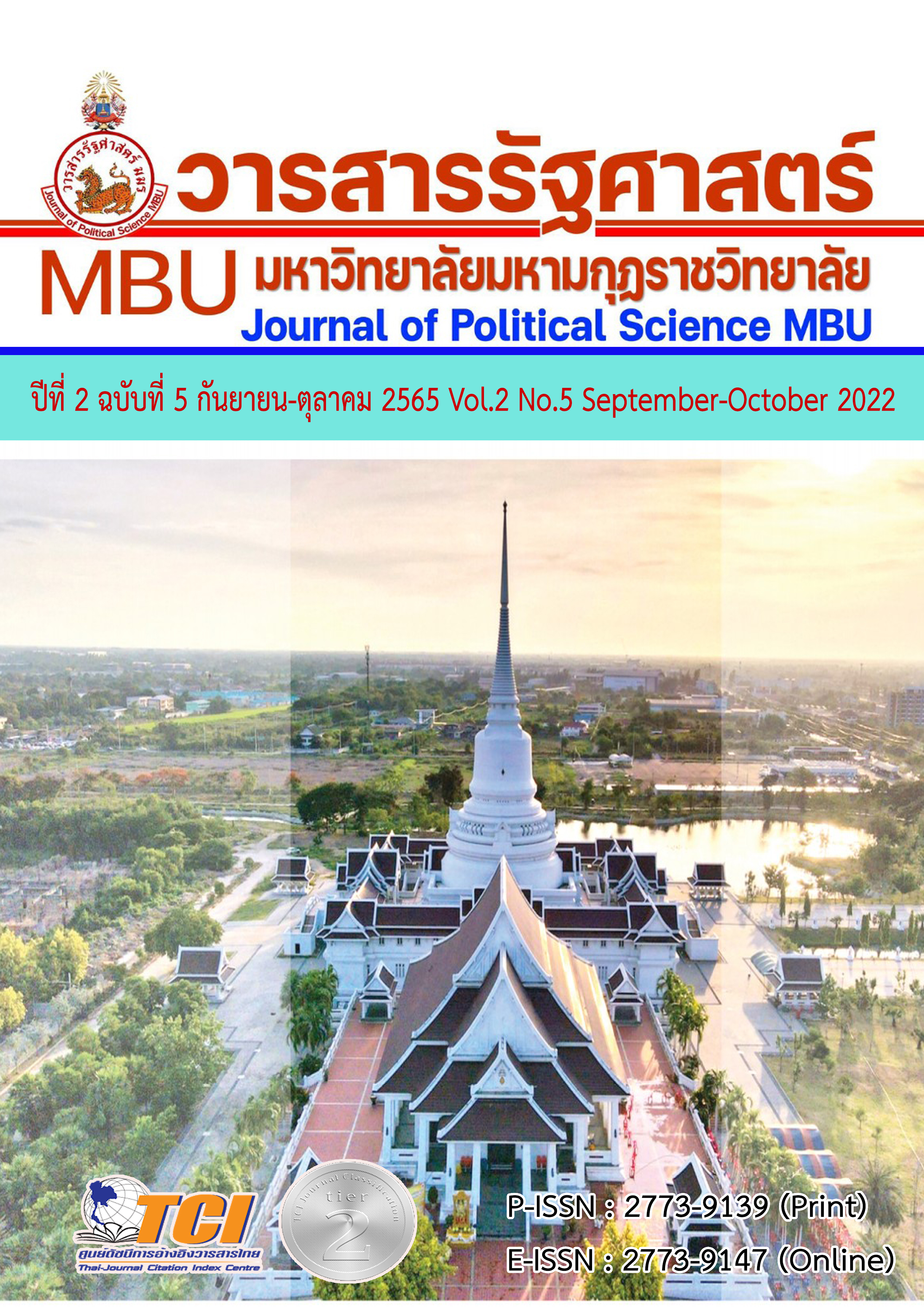AN ANALYTICAL STUDY OF THE APPLICATION OF RIGHT LIVELIHOOD PRINCIPLES IN DEVELOPMENT OF THE LIFE QUALITY OF PEOPLE IN NA THAM NUEA SUB DISTRICT, MUEANG DISTRICT, TRANG PROVINCE
Main Article Content
Abstract
The objectives of this thesis are as follows: 1) to study the application of right-livelihood in Buddhism in improving the quality of life of people in Na Tham Nuea Subdistrict, Mueang District, Trang Province. 2) Incentive education Apply the right livelihood principles to improve the quality of life of the people in Na Tham Nuea Sub-district, Mueang District, Trang Province. 3) To study the guidelines for improving the quality of life of people in Na Tham Nuea Subdistrict, Muang District, Trang Province. This is a qualitative research. A group of key informants conducted a purposive sampling, namely a group of religious leaders and a group of community peoples in Na Tham Nuea Subdistrict, Mueang District, Trang Province, totaling 14 people; the instrument is interview form, by using an in-depth interview method. Data analysis by descriptive method.
The results showed that; 1) Using the principle of right-livelihood in Buddhism to improve the quality of life with honest occupation. It consists of not encroaching on others. 2) Application of the right - livelihood to improve the quality of life, people have a better life in society, happy society, Progress in daily life, making a living that is right to improve the well-being of the community and live according to the principles of sufficiency economy based on the principles of law and good morals and ethics. 3. Approaches for improving the quality of life of people in right-livelihood found that (1) Promotion of people in a good income to the family, the suggestion of honest occupation for helping in occupational performance. (2) People make a self and family sustainability, promotion of right livelihood, according to self-sufficiency economy philosophy, for purposive goal and reducing of the poor problem, social problem, and inequality.
Article Details

This work is licensed under a Creative Commons Attribution-NonCommercial-NoDerivatives 4.0 International License.


